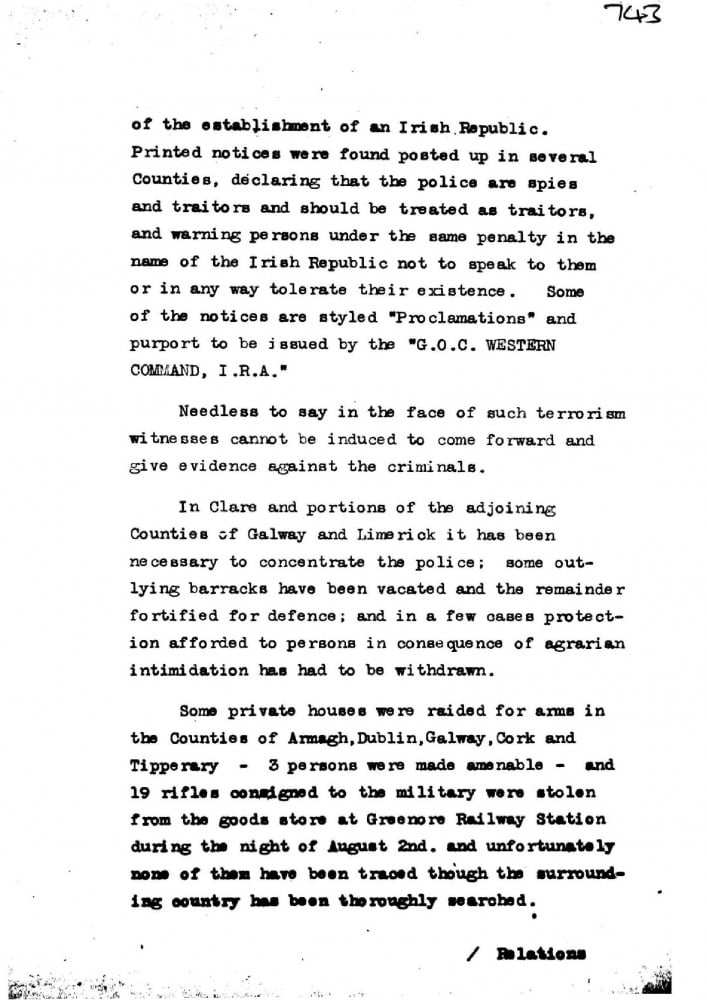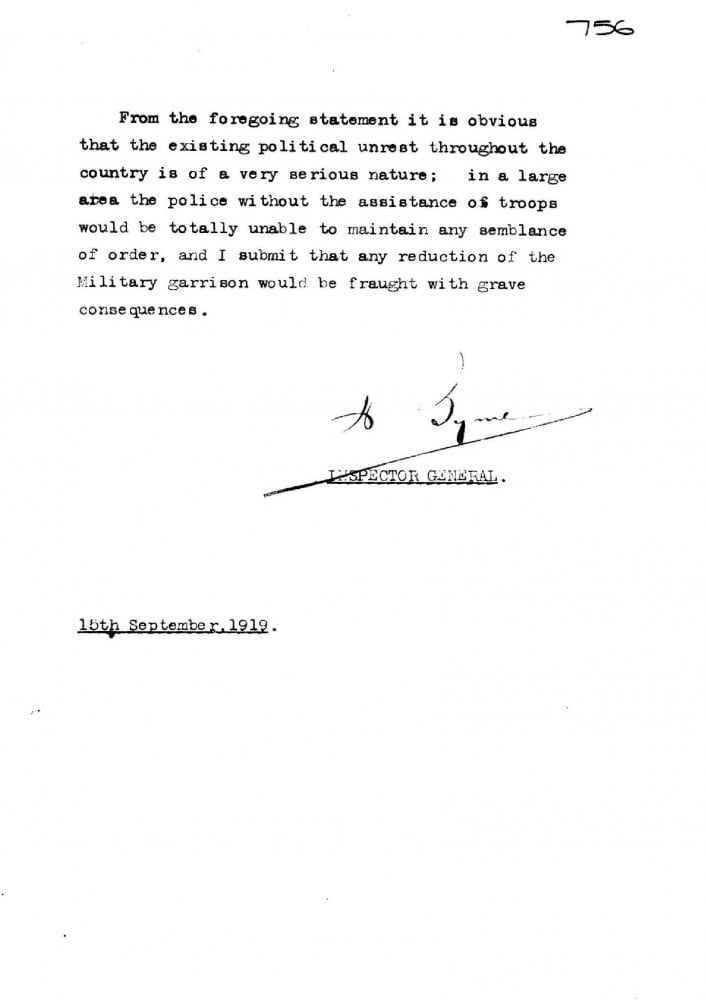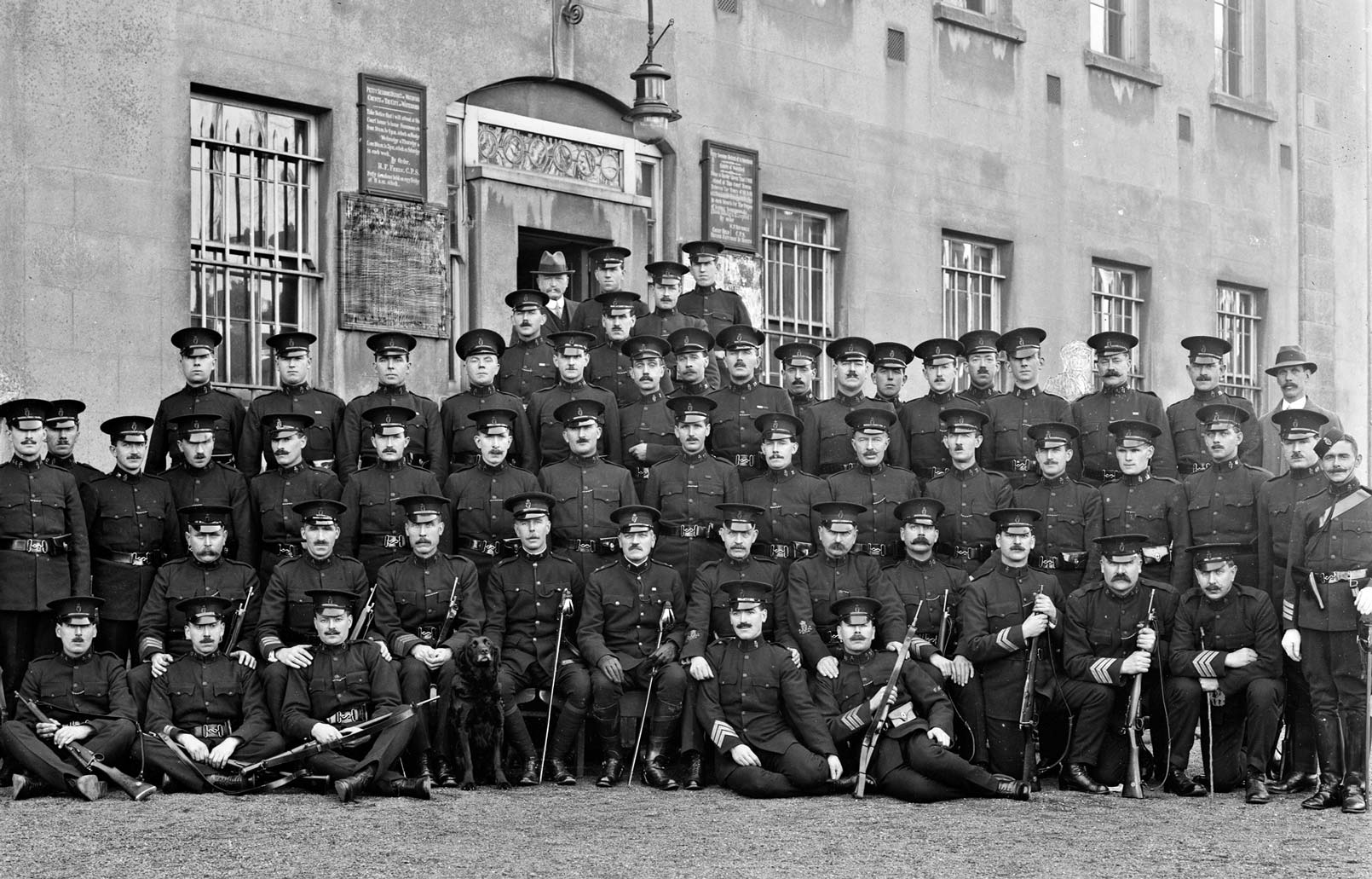Sinn Féin urge members to intensify opposition to militarism in Ireland
Dublin, 3 August 1919 - Relations between the public and police in Ireland continue to sour, and the breakdown of law and order is becoming increasingly apparent with each passing day.
On 30 July, Detective Sergeant Patrick Smith was ‘riddled with bullets’ near his home on Millmount Avenue in Drumcondra in Dublin. He is currently being treated for his injuries at the Mater Hospital where his condition is reported to be ‘very serious’.
In Broadford, Co. Clare, this morning, gunfire was exchanged when police scrambled to protect their barracks from attack by a party of about 30 masked men, some armed with rifles and revolvers. The attack lasted over an hour, with Sergeant Crowley and four constables defending the barracks as bullets hit the building’s door and windows. Sergeant Crowley’s wife assisted the police by keeping them supplied with bullets throughout the attack. Their combined efforts were lauded by the Inspector General of the RIC, Sir John Byrne, as ‘magnificent’ in the face of such unpromising odds.

|

|
Two reports from August 1919 from the Inspector General on the current situation in Ireland. (Images: National Archives, UK CO 904 109 & CO 904 109)
Aside from violence, another republican tactic to demoralise the police and the army in Ireland has emerged. During the court-martial of William McNally from Longford, earlier this week, the accused was reported to have been found in possession of a statement issued by Sinn Féin headquarters at 6 Harcourt Street in Dublin. This statement was signed by senior party figures Hanna Sheehy Skeffington and Tom Kelly, and urged, in keeping with a Dáil Éireann decree of 10 April 1919, that all English forces in Ireland be ‘ostracised socially by the people of Ireland’.
Members of all Sinn Féin branches were instructed to:
- Avoid all interactions with such persons, unless purely business
matters made it absolutely necessary
- Do not salute them or reply to their salutations
- Do not take part in any social entertainment where they are
expected to be present as guests
- Leave any social entertainments immediately, such as dances etc,
where they were allowed to attend
- Avoid all places where they are known to visit, in particular
public houses they were known to frequent
The Sinn Féin policy is, the documents made clear, to apply to all members of the RIC and DMP – officers and men (‘peelers’), as well as detectives and spies (‘g-men’).
[Editor's note: This is an article from Century Ireland, a fortnightly online newspaper, written from the perspective of a journalist 100 years ago, based on news reports of the time.]





















